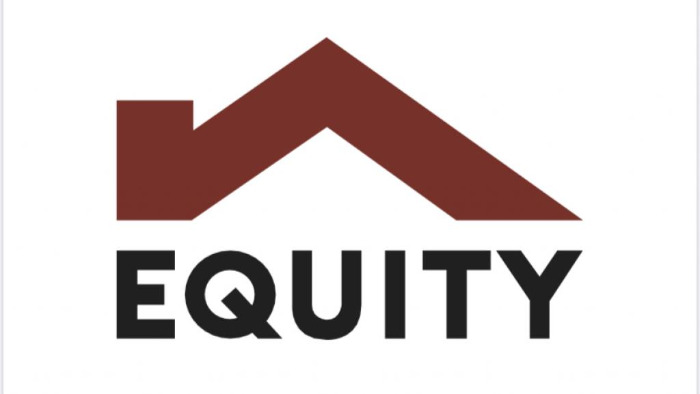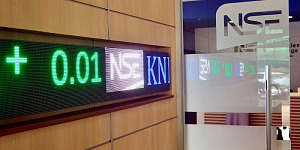Equity Group is set to pay shareholders a record dividend of Sh11.3 billion or Sh3 per share for the year ended December when its net profit nearly doubled to Sh39.1 billion.
The lender has reinstated dividend after freezing payouts in 2019 and 2020 to conserve cash in the wake of the Covid-19 pandemic.
Equity’s last dividend before the coronavirus crisis was for 2018 when it made a cash distribution of Sh2 per share or a total of Sh7.5 billion.
The country’s biggest bank had proposed a higher payout of Sh7.4 billion or Sh2.5 per share for the year ended December 2019 but revoked the plan as the pandemic unfolded.
It maintained the dividend freeze in the subsequent year when it also made a $95 million (Sh10.8 billion) investment in acquiring a majority stake in Banque Commerciale Du Congo (BCDC).
“We are going to pay a dividend of Sh11.3 billion, which is a 50 percent increase of the last dividend payout,” Equity chief executive James Mwangi said.
Equity’s net income of Sh39.1 in the year ended December is a record for the bank and the industry, outpacing Sh34.1 billion posted by KCB Group -- which was previously the biggest bank by earnings and assets.
Co-op Bank was the third-most profitable among banks that have published their results with a net income of Sh16.5 billion, followed by Absa Bank Kenya (Sh10.8 billion), Standard Chartered Bank Kenya (Sh9.04 billion) and Stanbic Holdings (Sh7.2 billion).
Equity’s dividend is also the largest in Kenya’s history ahead of KCB’s Sh9.6 billion, StanChart’s Sh7.1 billion, Co-op Bank’s Sh5.86 billion, Absa’s Sh5.9 billion and Stanbic Holdings’ Sh3.55 billion.
As a share of net profit, however, Stanchart’s dividend is the most generous at nearly 80 percent, followed by Absa (55 percent), Stanbic (49 percent), Co-op Bank (35 percent) and Equity and KCB at 28 percent each.
Equity’s improved profitability in the review period was driven by higher interest income, non-interest income as well as lower operating expenses on reduced provisioning for bad debt.
The bank cut its loan loss provision to Sh5.8 billion from Sh26.6 billion in 2020, attributing the move to improved loan recovery that saw the stock of bad loans fall to Sh53.8 billion from Sh59.3 billion.
Mr Mwangi said Equity was committed to reducing the net defaults by over Sh10 billion this year, signalling an aggressive recovery strategy going forward.
“Let me announce what my team has committed to is now a public promise. They have committed to reduce net NPLs [non-performing loans] from Sh44 billion to Sh30 billion,” Mr Mwangi said.
The bank also saw a jump in interest earnings to Sh94.3 billion, supported by strong growth in revenues from lending to the government.
Interest income from government securities grew from Sh20.9 billion to Sh29.4 billion.
It expects to boost its loan book this year as it shifts from government securities, Mr Mwangi told an investor briefing. Equity had parked Sh394 billion in government securities at the end of last year, double the amount the previous year, and it will shift some of that to higher-yielding customer loans, Mr Mwangi said.
“There is a huge opportunity of re-allocating (assets),” he added.
Interest on loans to customer grew from Sh52 billion to Sh68.8 billion, indicating limited margins following delays in approval of risk-based lending.
Equity projects higher returns from its customer loan book this year after the Central Bank of Kenya (CBK) approved its lending model that will see it increase rates up to 18.5 percent from current average of 13.5 percent.
It became the first bank to publicly reveal that the regulator had approved the risk element in its lending formula, which allows banks to lend to riskier customers but at higher rates to cover the cost of defaults by a section of them.
Mr Mwangi said the new pricing model will have a base of 13 percent, which matches the average rate charged on government bonds of over five years.
Small businesses will get loans at rates of between 14 percent and 16 percent from Equity while unsecured loans will attract as much as 18 percent.
The bank has raced ahead of others who are yet to get approvals to increase revenues from customer loans.
Multiple bank executives had last year protested to the International Monetary Fund (IMF) over the CBK’s reluctance to approve their applications to raise the cost of loans following the scrapping of interest rate controls on November 7, 2019.
Banks have been eager to price loans to different clients based on their risk profile but this flexibility remained a mirage after the CBK stepped in as the de facto controller of cost of credit.
























































